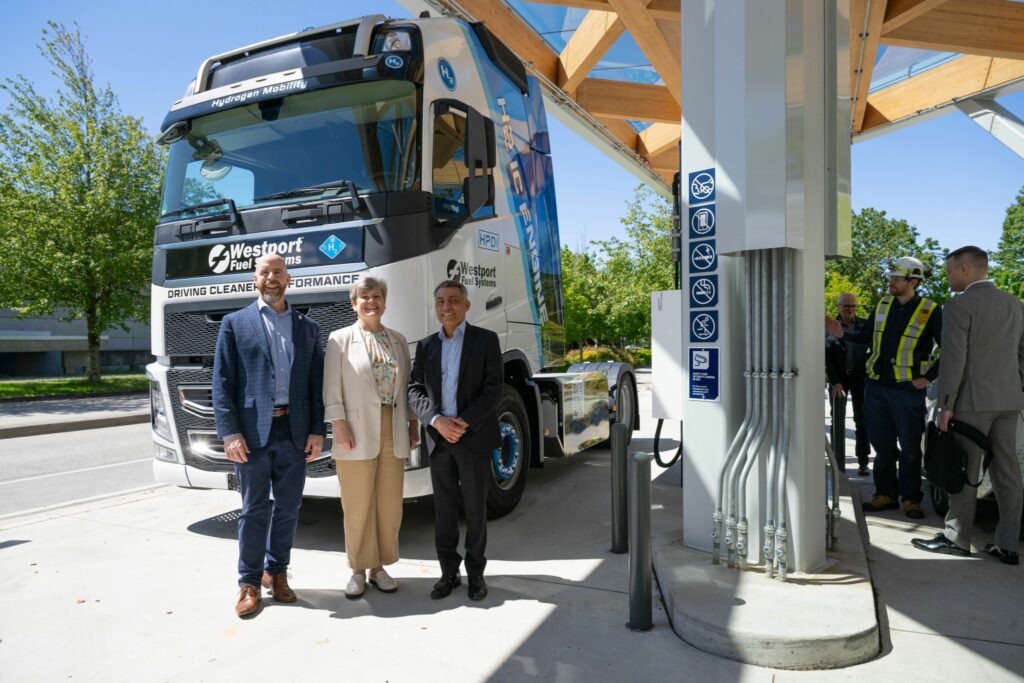UBC builds green hydrogen fueling station for trucks
The University of British Columbia (UBC) has opened a Smart Hydrogen Energy District (SHED), capable of fueling cars and heavy-duty trucks with hydrogen.
The hydrogen will be produced using solar and hydro power to operate a water electroyzer, creating green hydrogen. UBC says it’s one of the first sites to combine hydro, solar and hydrogen at a single site and also says it’s B.C.’s first hydrogen station capable of filling light- and heavy-duty vehicles.

“The UBC Smart Hydrogen Energy District (SHED) is yet another leap forward in building a clean economy and creating new opportunities for British Columbians,” said Minister of Energy, Mines and Low Carbon Innovation, Josie Osborne.
“By integrating energy, transportation, and design, SHED not only supports our CleanBC goals but it also positions British Columbia as a world leader in the hydrogen economy. Projects like this demonstrate our commitment to producing clean energy and ensuring a prosperous future for generations to come.”
“Hydrogen can play a critical role in Canada’s transition to a low-carbon economy,” said Dr. Walter Mérida, SHED research lead and professor of mechanical engineering in the Faculty of Applied Science.
“With SHED, we demonstrate hydrogen as a bridge between renewable electricity and sustainable energy services. As technologies become smart and interconnected, we can stop thinking of gas, electrical and digital networks as separate entities.”
The complex, housed within a city block, has a rooftop solar array to power both the hydrogen fueling station and nearby electric vehicle chargers. Parked vehicles can return unused energy to the microgrid through two-way charging.
“Cars sit in parking spaces most of the time — with the right infrastructure, they can also serve as mass power banks, stabilizing the electric grids of the future,” said Mérida.
Funding came from the province ($8.3 million), feds ($5 million), Canada Foundation for Innovation ($4.6 million), B.C. Knowledge Development Fund ($4.6 million), and HTEC ($800,000).
Have your say
This is a moderated forum. Comments will no longer be published unless they are accompanied by a first and last name and a verifiable email address. (Today's Trucking will not publish or share the email address.) Profane language and content deemed to be libelous, racist, or threatening in nature will not be published under any circumstances.
So the Government agencies have contributed over $20 million dollars to this venture.
How long before this becomes a marketable product if, ever?
Meanwhile the diesel truck industry continues to improve their product.
Fossil fuels will be around for a long time to come, particularly for long haul trucking!!!!